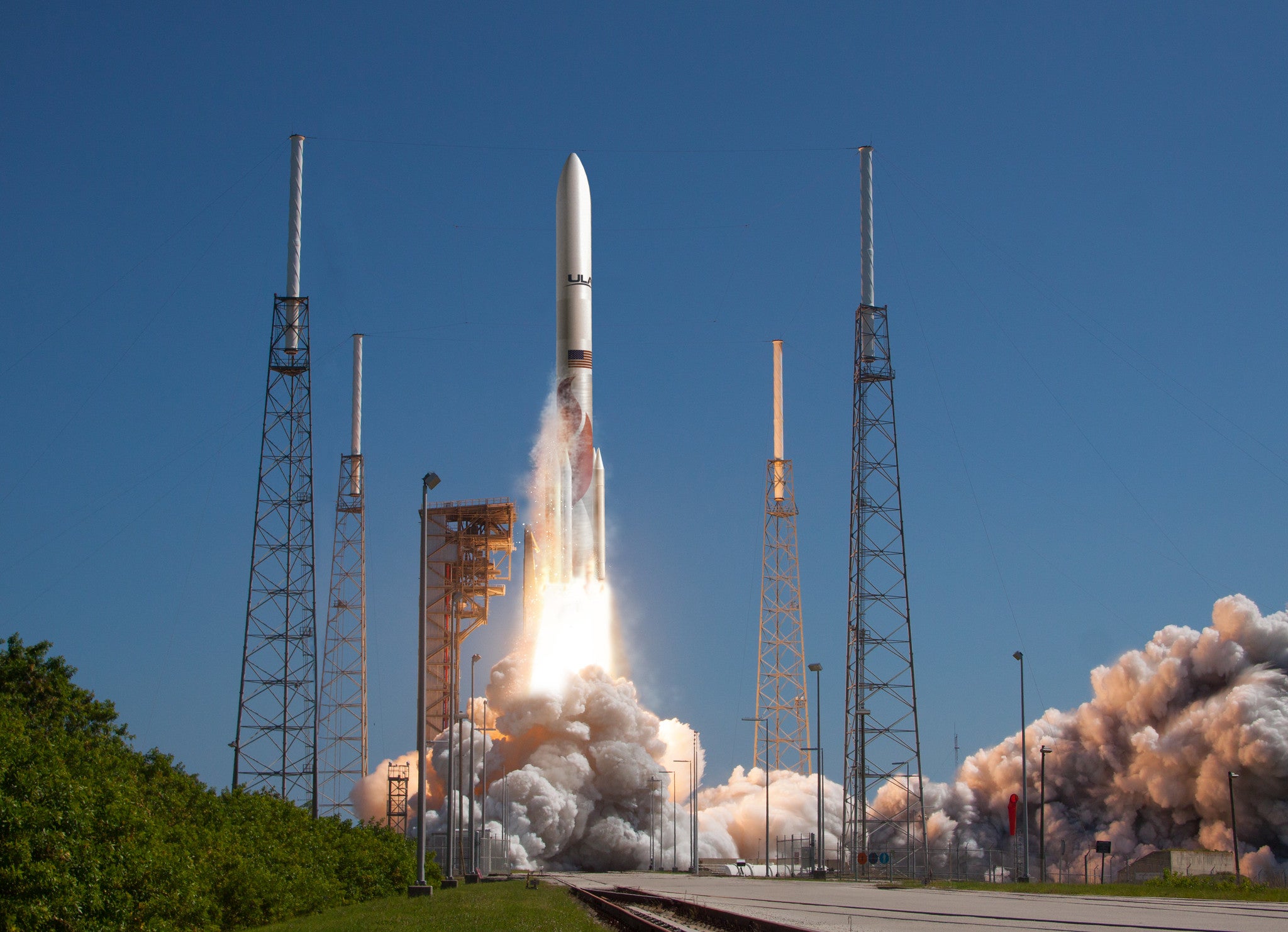Amazon’s first internet satellites will launch on a rocket that’s never flown before
Amazon’s Project Kuiper will eventually have 3,236 satellites in orbit as part of its megaconstellation

Your support helps us to tell the story
From reproductive rights to climate change to Big Tech, The Independent is on the ground when the story is developing. Whether it's investigating the financials of Elon Musk's pro-Trump PAC or producing our latest documentary, 'The A Word', which shines a light on the American women fighting for reproductive rights, we know how important it is to parse out the facts from the messaging.
At such a critical moment in US history, we need reporters on the ground. Your donation allows us to keep sending journalists to speak to both sides of the story.
The Independent is trusted by Americans across the entire political spectrum. And unlike many other quality news outlets, we choose not to lock Americans out of our reporting and analysis with paywalls. We believe quality journalism should be available to everyone, paid for by those who can afford it.
Your support makes all the difference.Amazon will send the first two Project Kuiper internet satellites into orbit early next year.
The Kuipersat-1 and Kuipersat- craft will be deployed on United Launch Alliance’s Vulcan Centaur rocket, rather than the RS1 rocket from ABL Space Systems as previously planned.
The Centaur, powered by two BE-4 engines built by Blue Origin, was supposed to fly in 2020, but multiple delays pushed the launch back. The two-stage rocket is now “nearing completion”, according to an announcement on Wednesday.
This commercial mission is part of ULA’s requirement to meet the US Space Force certification of its new launch vehicle. “We are committed to ensuring we fly the first certification mission and stay on schedule ... in advance of our first national security space mission,” Mark Peller, vice president of major development, stated.
It will also carry Astrobotic’s Peregrine lunar lander to the Moon, as a part of Nasa’s Commercial Lunar Payload Services. Peregrine is expected to be the first US spacecraft to land on the Moon since the end of the Apollo program, carrying 24 missions including 11 Nasa items, a Carnegie Mellon rover, private cargo and “cultural messages” from Earth.
“The first Vulcan launch vehicle is nearing completion in ULA’s factory in Decatur, Alabama and is awaiting installation of its BE-4 engines,” the company said. “We expect to ship the completed vehicle to the launch site in November.”
Amazon plans at least 92 launches over the next five years, using companies including Arianespace and ULA, but not SpaceX - the company’s main competitor in the satellite internet market.
Eventually Project Kuiper will have 3,236 satellites as part of its megaconstellation, while SpaceX wants to send upwards of 42,000 satellites to orbit for Starlink. This will “provide low-latency, high-speed broadband connectivity to unserved and underserved communities around the world,” Amazon said in a statement.
Jeff Bezos, the founder of Blue Origin and Amazon, has spent at least $1bn on Blue Origin, but missions have not always gone smoothly.
Last month, a Blue Origin rocket launch was aborted when the rocket booster exploded just more than a minute into the flight.



Join our commenting forum
Join thought-provoking conversations, follow other Independent readers and see their replies
Comments